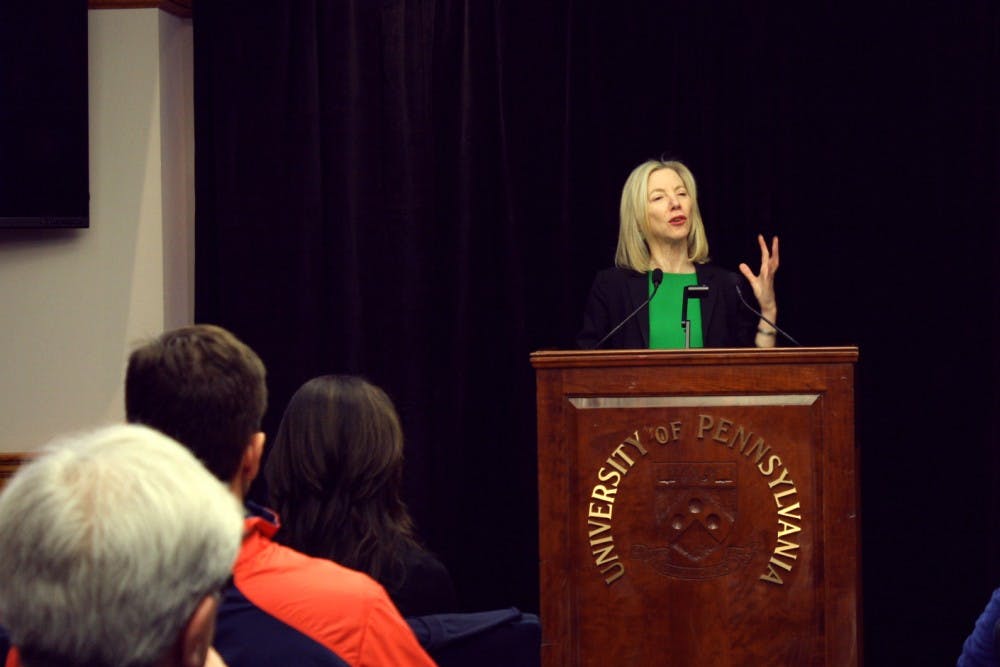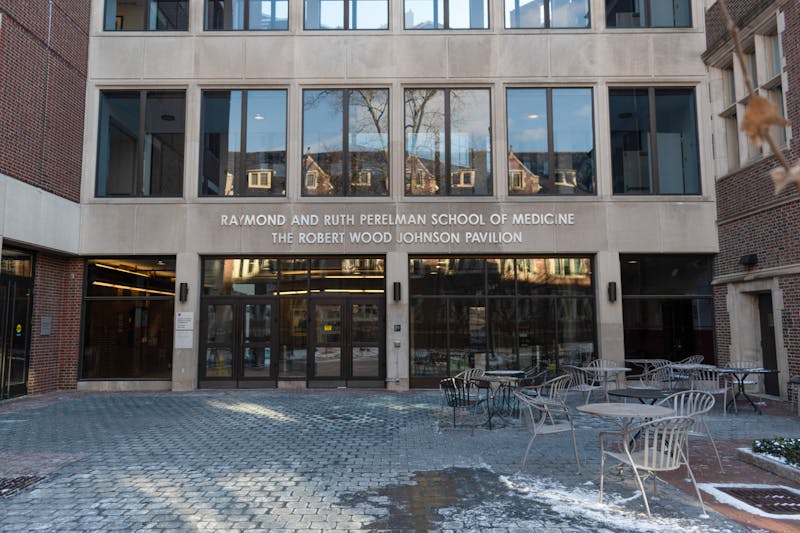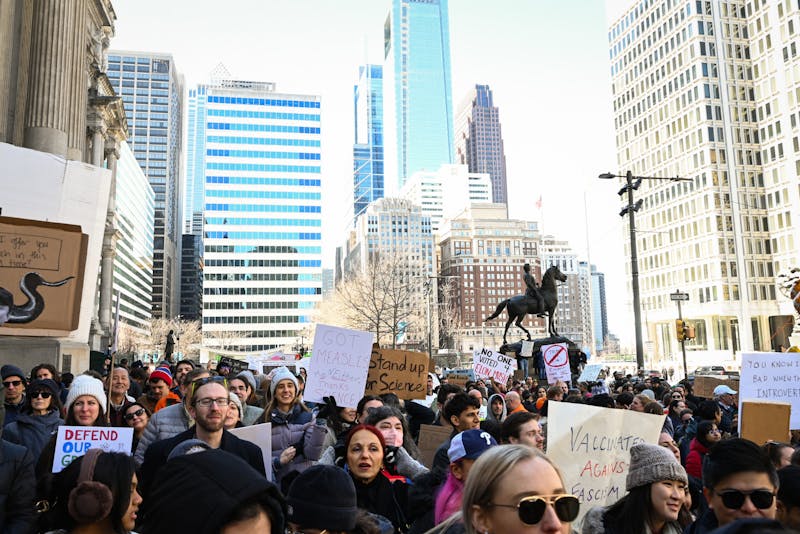
Penn President Amy Gutmann has said that the University's decision to rescind the honorary degrees granted to Steve Wynn and Bill Cosby was "very logical" given the circumstances.
Speaking for the first time on the issue since Penn made its announcement on Wynn and Cosby two weeks ago, Gutmann said revoking the two honorary degrees came as a natural follow-up to the decision to remove Wynn's name from "Wynn Commons," the public area outside Houston Hall.
Wynn, a former Penn trustee and a 1963 College graduate, was accused by multiple people of sexual misconduct in January, sparking a strong response from the Penn community that eventually led to the Board of Trustees stripping a former member of his honors.
"The group [of University leaders] unanimously recommended that we take Mr. Wynn’s name off of Wynn Commons. And once we did that, it was important also to rescind his honorary degree. And once we did that, we thought it was also important to rescind Bill Cosby’s honorary degree based on similarly serious and credible allegations," Gutmann said in a 30-minute interview with The Daily Pennsylvanian. "It’s very logical."

Cosby, who has now been accused of sexual misconduct by over 50 women, received a Doctorate of Laws from Penn in 1990.
In 2015 and 2016, many of these allegations came to light and a series of civil lawsuits were filed against Cosby. During that period, over a dozen universities rescinded honorary degrees from Cosby, though Penn said at the time that this was not the University's practice.
“While the allegations against Mr. Cosby are deeply troubling, it is not our practice to rescind honorary degrees,” Vice President for University Communications Steve MacCarthy said in 2016.
Gutmann confirmed this in the interview on Feb. 20.
"We, along with other Universities, decided not to rescind," she said. "The Trustees had a practice, a century-long practice [...] of not rescinding honorary degrees."
When asked what had specifically prompted the University to change its position from 2016 to 2018, Gutmann referred again to the series of steps that the Board of Trustees took to come to its conclusion, starting with the decision to remove Wynn's name from "Wynn Commons" and ending with the decision to rescind Wynn's and, therefore, Cosby's degrees.
"That was the right decision at the right time," she said.

Gutmann also said the Trustees "were hoping to learn something" from a trial involving Cosby that was scheduled in 2016. The case eventually ended in a mistrial in 2017, with a jury that was deadlocked even after six days of deliberations. While the jury did not come to a final decision on Cosby, Gutmann said this "additional information" contributed to the Trustees' change in mindset.
Penn's announcement on Feb. 1 marked the first time in a century that the University decided to rescind an honorary degree. Some Penn alumni have said that they think the decision to do so was "premature" because neither Wynn nor Cosby have been criminally charged for the allegations brought against them.
“In the current environment, it’s just fashionable to take someone down without the process completing itself,” 1963 Wharton graduate Burke Asher said.
Gutmann seemed to respond directly to these comments in the interview.
"These are honorifics that we are rescinding," she said. "We are not a court of law. We are not meting out legal punishment. We are rescinding honorifics."
The Daily Pennsylvanian is an independent, student-run newspaper. Please consider making a donation to support the coverage that shapes the University. Your generosity ensures a future of strong journalism at Penn.
Donate






